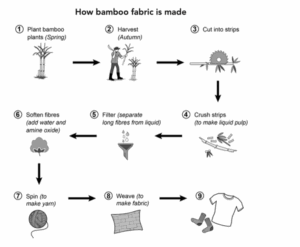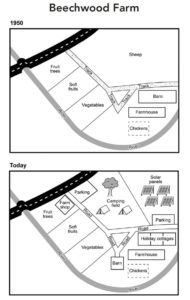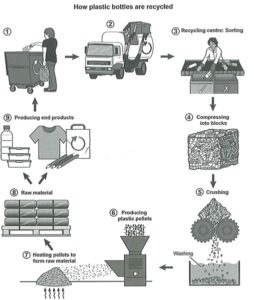The definite article “the” is mainly used to show that you’re talking about a particular thing or person that has already been mentioned or is already known. In this guide, you will learn when to use this article.
We use the definite article in the following situations:
When the listener/reader knows exactly what we are referring to
Examples:
- Can you give me the book, John? In this example, John knows which book I am talking about.
- Your cat doesn’t like me at all. Last week, I was watching TV when it attacked me. The cat is a maniac.
When the thing we’re referring to is one of a kind
Examples:
- The Pope will give a speech this afternoon.
- Our house is next to the Italian restaurant. In this example, there’s only one Italian restaurant in the area or town.
Note: This is why we use the definite article with a superlative adjective.
Examples:
- Tokyo is the largest city on Earth.
- He’s the smartest person I know.
When referring to the things that are universally known
We use “the” with things known to everyone (the sun, the moon, etc.) because they are a part of our physical environment or part of the natural world.
Examples:
- The earth moves around the sun.
- We lay on the grass and watched the stars.
- Sometimes, the traffic kept her awake at night.
- Many children are afraid of the dark.
When referring to a particular type of thing or person in a general way
Note: You can also use the plural form of a noun without the definite article for this purpose.
Examples:
- The dog is man’s best friend. = Dogs are called man’s best friends.
- The heart pumps blood around the body. = Hearts pump blood around bodies.
With musical instruments
Examples:
- Joe plays the piano well. = Joe can play any piano.
- She is learning the guitar. = She is learning to play any guitar.
With adjectives like rich, poor, elderly, unemployed, etc. to talk about groups of people
Examples:
- Life can be very hard for the poor.
- I think the rich should pay more taxes.
- She works for a group that helps the disabled.
When referring to all the people with nationalities that do not have plural forms
Nationalities that end in ss, ch, ese, or sh have no plural forms. Therefore, when you’re referring to all the people with such nationalities, use the definite article without the plural “s.”
Examples:
- The Swiss = all the people from Switzerland
- The Dutch = all the people from the Netherlands
- The Japanese = all the people from Japan
- The English = all the people from England
With nouns that refer to actions and changes when they’re followed by “of”
Examples:
- The arrival of new technologies
- The growth of the economy
When referring to a part of someone’s body
Example:
- The player took a hit in the stomach and then was rushed to the hospital.
- He was wounded in the knee.
When referring to a period of time, especially a decade or century
- He started his business in the 1990s.
- Nationalism became a major political issue in the world in the 20th century.
With ordinal numbers
Examples:
- The 20th of November
- The first batch of vaccines arrived yesterday.
When referring to enough of something for a particular purpose
Examples:
- We don’t have the resources to complete the job on time.
- I don’t have the time to talk right now.
- Luckily, we have the money for such a huge project.
Question: How about proper nouns like Jake or French? Do we use them with the definite article?
Answer: We do not normally use the definite article with proper nouns.
Examples:
- The William Shakespeare wrote Hamlet.
- The Paris is the capital of France.
However, we use the definite article with some names.
Countries whose names include words like kingdom, states, or republic
Examples:
- The United Kingdom
- The Kingdom of Nepal
- The United States
- The People’s Republic of China.
Countries that have plural nouns as their names
Examples:
- The Netherlands
- The Philippines
Geographical features, such as mountain ranges, groups of islands, rivers, seas, oceans, and canals.
Examples:
- The Himalayas
- The Atlantic
- The Atlantic Ocean
- The Amazon
- The Panama Canal
Services like Internet, radio, public transportation, and newspaper but mostly not TV
Examples:
- The Times
- I found this song on the internet.
- I always listen to the radio while driving.
- The Washington Post
- I usually take the subway to work.
Buildings, works of art, museums, or monuments
Examples:
- The Empire State Building
- The Taj Mahal
- The Mona Lisa
Organizations
Examples:
- The United Nations
- The World Health Organization
Hotels, pubs, and restaurants*
Examples:
- The Plaza
- The Park Hotel
*Note: We do not use “the” if the name of the hotel or restaurant is the same as the name of the owner.
Examples:
- Brown’s Hotel
- Jackson Brothers’ Restaurant
Families
We use “the” before the name of a family in the plural to refer to all the members of that family.
Examples:
- The Simpsons are lovely people.
- The Jacksons are coming over tonight.
Names of some diseases
Examples:
- the measles
- the flu
- the mumps
- the bubonic plague
When not to use the definite article
There are some occasions when it seems using the definite article is the right choice, but in fact, you shouldn’t use it.
Uncountable nouns
Examples:
TheOil has been the dominant source of energy for a long time.- I love
themusic.
School, college, prison, or university when you’re talking about them in a general way
Examples:
- Many people believe that people shouldn’t go to
theprison for petty theft. - We were great friends when we were at
thecollege.
With times and months, or normally with days
Examples:
- I’ll see you at
thenoon. - The course starts in
theJune. - The meeting is on
theMonday.
With meals
- I have
thebreakfast at 7 am. - I don’t eat much for
thedinner.
More guides:








